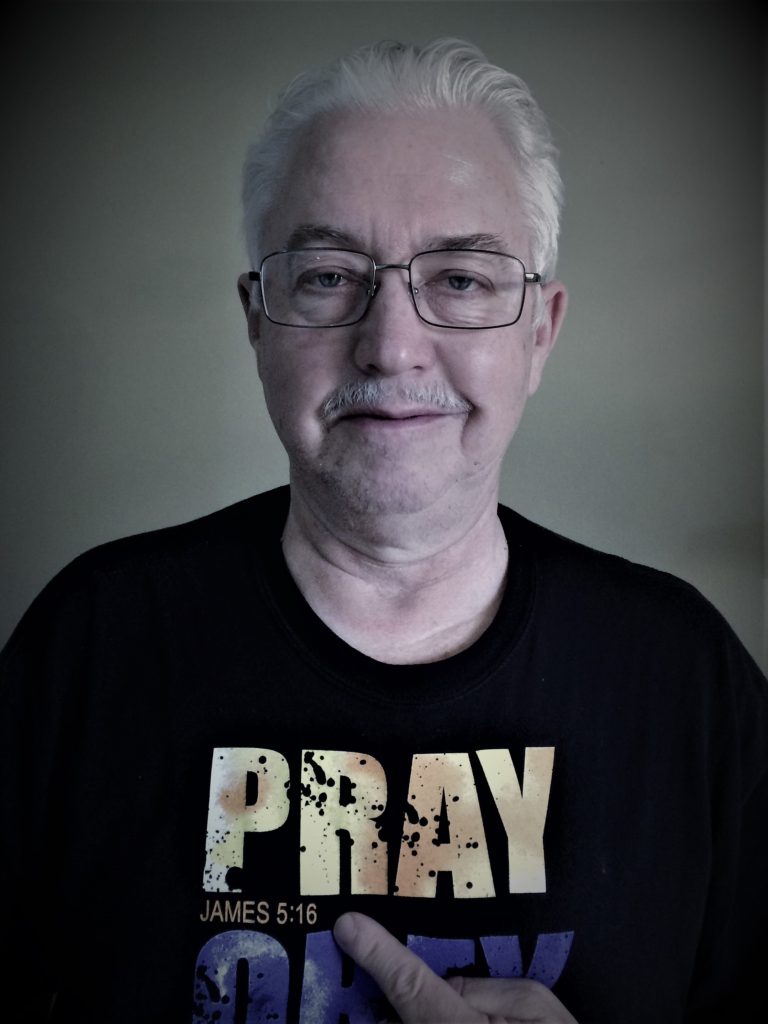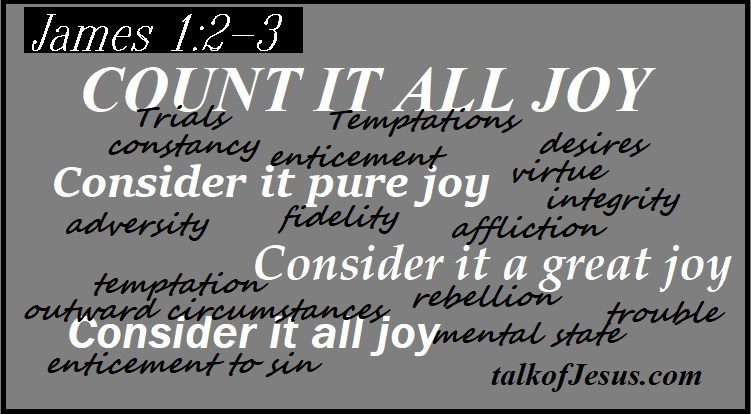But above all things, my brethren, swear not…
James 5:12a KJV
You had begun to count the barrage of important words to the congregation. “FINALLY,” says the preacher after a lengthy sermon, as our dull ears and glassy eyes slowly return, “point number nine.”
Peter, Paul and others frequently conclude with ‘finally,’ James closes his letter, ‘above all.’
In conclusion
Before we examine this specific closing of James and the concluding nine verses, consider a few closing points of other pastoral letters.
- Finally, brothers and sisters, rejoice. Become mature, be encouraged, be of the same mind, be at peace, and the God of love and peace will be with you. – Paul, in his second and final letter to the church at Corinth.
- Finally, be strengthened by the Lord and by his vast strength. – Paul’s brief closing to his church at Ephesus
- Finally, brothers and sisters, whatever is true, whatever is honorable, whatever is just, whatever is pure, whatever is lovely, whatever is commendable — if there is any moral excellence and if there is anything praiseworthy — dwell on these things. – Paul’s closing to the church at Philippi
James closes: Above all, my brothers and sisters, do not swear… so that you won’t fall under judgment.
Other first generation church leaders also include similar phrases as if to say, ‘last, but not least.’ Their letters also emphasize some of same points to remember as does James.
- Above all, put on love, which is the perfect bond of unity. – Paul’s letter to the church at Colossae
- Above all, maintain constant love for one another, since love covers a multitude of sins. – First letter of Peter to the church, echoed by James’ concluding sentence.
- Above all, be aware of this: Scoffers will come in the last days scoffing and following their own evil desires – Second letter of Peter to the church. Early in his letter James makes a similar point:
James 5:
Oaths
12 Above all, my brothers and sisters, do not swear, either by heaven or by earth or with any other oath. But let your “yes” mean “yes,” and your “no” mean “no,” so that you won’t fall under judgment.
James does not prohibit oaths; rather he calls out those who take oaths, vows or solemn promises lightly.
If a Christian’s oath is the fruit of God, then our words must convey pure truth. NO guarantees by god, as unbelievers see the Lord, and NO guarantees by earth and NO oaths by any other authority outside your own true word.
Yes equals yes and your no equals no. Simplicity. And truth by your own personal guarantee of your own words. Does this not go back to the opening point of James’ letter to the church?
My dear brothers and sisters, understand this: Everyone should be quick to listen, slow to speak, and slow to anger, for human anger does not accomplish God’s righteousness.
James 1:19-20 CSB
Don’t get God involved in your words to another. By your words you will be judged. – Matthew 12:37
Prayer
13 Is anyone among you suffering? He should pray…
What believer in Christ does not suffer? All sometimes suffer hardship, sickness, troubles and many evils.
Pray, beloved brother, James urges in his letter. Pray, beloved sister. Yet he also points to the encouragement from others in our church family, because their joy reflects the Lord to us.
Are you cheerful? Then sing praises to the Lord.
(Are you? Then do you?) Those brothers and sisters who suffer hardship feel your joy in Christ. At times you also need to hear the joy of beloved brothers and sisters in Christ.
14 Is anyone among you sick? He should call for the elders of the church, and they are to pray over him, anointing him with oil in the name of the Lord.
Here James points to leadership roles of encouragement by our local church. His corporate letter tells all who are sick to seek the anointing and prayer of our local leaders, the elders who shepherd us. Though the anointing oil does not heal the unknown mysteriously; the Lord, in answer to prayer, may heal the one who believes, if it is His will.
Mark relates good news of such results by those sent out into surrounding towns by the Lord Jesus.
So they went out and preached that people should repent. They drove out many demons, anointed many sick people with oil and healed them.
Mark 6:12-13 CSB
Once again, before the Lord’s half-brother repented of his disbelief, James most likely knew some of these who experienced miraculous healings. James continues:
The prayer of faith will save the sick person, and the Lord will raise him up; if he has committed sins, he will be forgiven.
James 5:15 CSB
Jesus forgives a lame man
Perhaps you recall a healing by Jesus in a public event where James may have been among the crowds outside the house.
Luke 5:
17 On one of those days while he was teaching… sitting there … from every village of Galilee and Judea, and also from Jerusalem. 18 Just then some men came, carrying on a stretcher a man who was paralyzed… because of the crowd, they went up on the roof and lowered him on the stretcher through the roof tiles into the middle of the crowd before Jesus.
20 Seeing their faith he said, “Friend, your sins are forgiven.”
… Who can forgive sins but God alone?”
23 Which is easier: to say, ‘Your sins are forgiven,’ or to say, ‘Get up and walk’?
24 But so that you may know that the Son of Man has authority on earth to forgive sins”—he told the paralyzed man, “I tell you: Get up, take your stretcher, and go home.”
25 Immediately he got up before them, picked up what he had been lying on, and went home glorifying God.
James 5: Do you need healing?

Above all, remember that God judges and that the Lord answers prayer.
16 Therefore, confess your sins to one another and pray for one another, so that you may be healed. The prayer of a righteous person is very powerful in its effect.
James points to Elijah, whose prayers God heard and answered because of his righteousness.
Are we not cleansed of our sin in Christ Jesus, dear brother?
Confess your sins and be cleansed by the righteousness of Christ. Pray for the sick among you.
Community
19 My brothers and sisters, if any among you strays from the truth…
James closes with this: IF any among you.
He does not begin by asking us to judge others, our neighbors or the world, but simply points this directly to application to the community of our church by saying, ‘if any among you.’
Christians tend to be quick to speak and slow to listen, as James cautions earlier in his letter.
strays from the truth
This closing call to truth is not to the grey-edged truths of the world which are not truth at all. His pastoral call to us is to that higher absolute truth of Christ Jesus.
Do not stray from truth. But if you do — and some of you will — bring your brother or sister back into the love of our church community.
and someone turns him back…
We all know the Way, the Truth and the Life. To bring someone back to Jesus will require their repentance.
But who will go to a brother in the Lord asking for his repentance?
It is not an easy thing to confront another in truth and love. (All the more reason we should limit this to the community of our church.)
20 let that person know that whoever turns a sinner from the error of his way will save his soul from death and cover a multitude of sins.
James’ question to those of the church is really more like:
Do you care at all if your brother (or sister) in the church will go to hell?
Go to him seeking his repentance and ask him to return to the Lord.
We all have many sins in need of covering by our works of grace.
see James 5:20
No Post Script
James writes to the church corporately, perhaps with certain individuals in various churches in mind.
He could have closed with a few personal greetings or asked for a personal messenger to come to him with help of some sort, but he does not. And James could have appealed to the authority given him as one of the brothers of Jesus, son of Mary the same mother. Again, he does not.
Rather, he appeals to all as brethren and himself humbly as a fellow servant of the Lord. James and the church at that time identify themselves as Jews.
Christians are no different than Jews to Rome and the world. Cause any trouble and you are not welcome in this city.

James writes to encourage several congregations throughout the region of the eastern empire of Rome.
Most hearers of his letter are poor, some very poor. Trials of life test your faith in the Lord.
Persist — show the fruit of your joy in the Lord, the evidence of your faith.
Count it all JOY, dear brothers and sisters, whenever you face the challenges of your faith in Christ Jesus!
HOW?
Any trial is an outward circumstance which could challenge your faith. Temptation always lurks inwardly as an enticement to sin. Here is one good way to resist:
…let every man be swift to hear, slow to speak, slow to wrath.
James 1:19b KJV
Do what the Law of God says and allow the Lord to judge others. Those rich who dispersed you to hard circumstances in difficult places will also be judged. Do not allow them to lead your church or you into sin.
All must show their works of their faith, bringing each other into repentance before the Lord. God commands peace between believers. Repent and love each other, for the sake of Christ Jesus.
Do you, beloved believer to whom I write, hear the Lord Christ Jesus in our appeal?
James writes to many churches, asking us to build community and faith by our works of faith in Jesus.
Above all, hear the heart of James.
For he was once the unbelieving brother of our Lord Jesus Christ. Now he asks us to show our faith by our works.


Leave a Reply